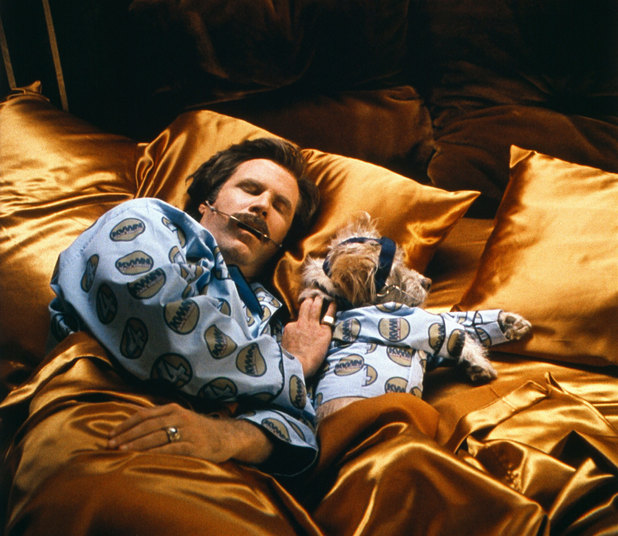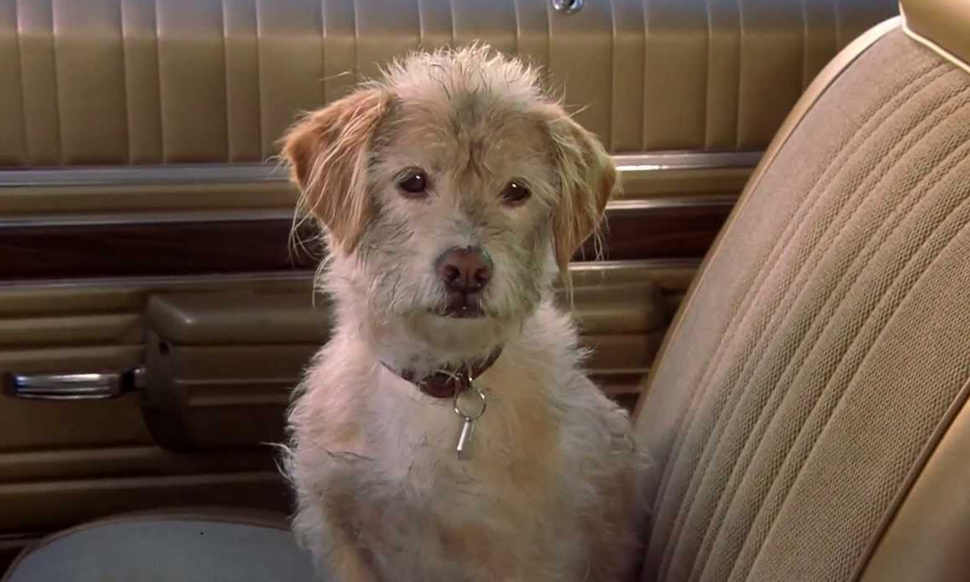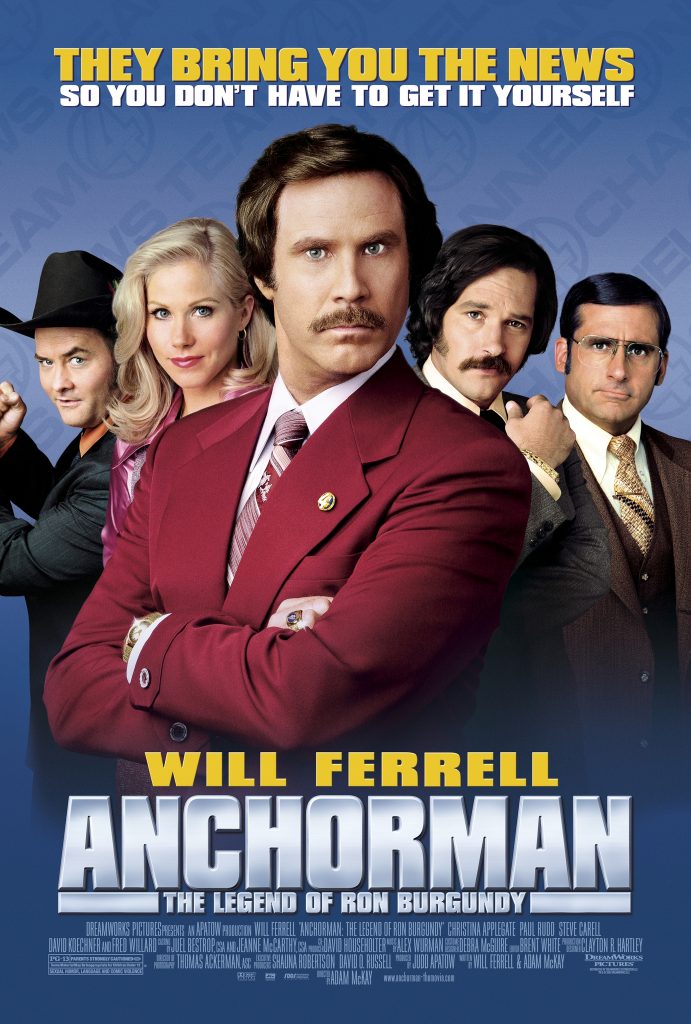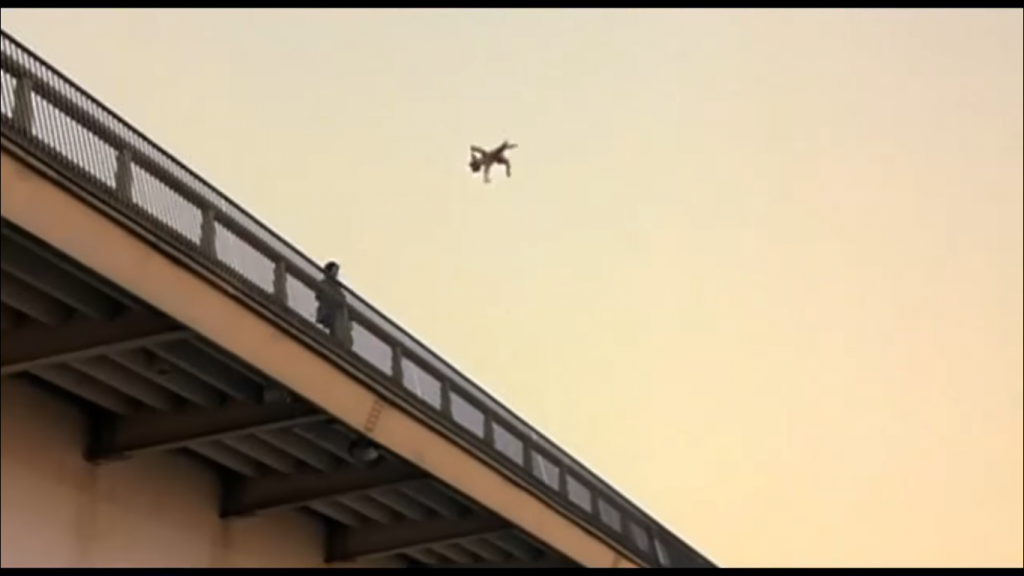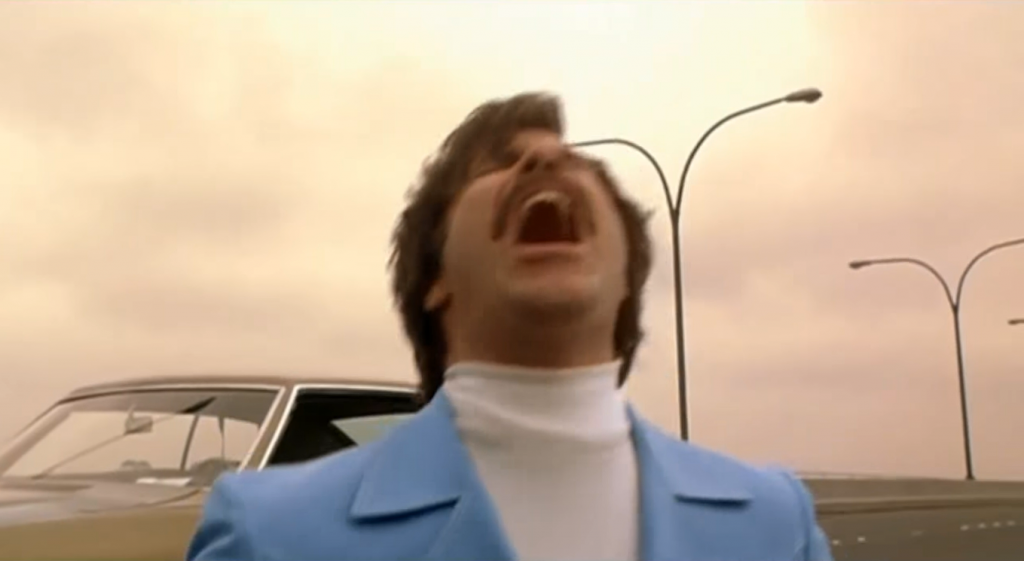Anchorman, starring Will Ferrell as the eponymous Ron Burgundy, is a tongue-in-cheek comedy that parodies 1970s American culture through its extremely self-conscious, gross-out style. The absurdity of Ron’s character is epitomized by the heavily exaggerated ‘man’s best friend’ relationship he has with his dog Baxter, whose most significant moment in the film comes when he is kicked from a bridge by an angry biker (Jack Black), apparently to his death in the water below.
The opening of the scene functions to enhance this exaggerated relationship, which is introduced earlier in the film when Baxter is anthropomorphised, supposedly speaking in multiple languages and wearing pyjamas. Ron treats Baxter as he would treat a human passenger; this is demonstrated through close-shots of Baxter occupying the passenger seat, taken from Ron’s perspective as he addresses his pet. Here, a key duality of the film is introduced. While we are encouraged to laugh at his excessiveness, these sensitive aspects of Ron’s personality temper his masculine grandstanding. The scene satirizes the cliché of a dog being treated as a ‘man’s best friend,’ but relies on the warmth of this companionship to ensure that the audience’s affection for Ron remains intact.
The moment when Baxter is kicked from the bridge is shocking and comic in equal measure, but should it be so funny? We have essentially witnessed the murder of a defenceless animal, yet all of McKay’s directional choices create comedy. A low-angle tracking shot follows Baxter’s limb body as it loops absurdly through the air and only the diagetic sounds of his collar jingling and seagulls squawking are included. This deadpan effect is compounded by the splash of Baxter hitting the water being delayed until after the focus has returned to the bridge. The comedy here comes not only through shock value but through the parody of human-pet relationships. In many ways the scene is designed to make us laugh at Ron, his exaggerated relationship with Baxter and at the close-up shot of his melodramatic reaction, which parodies tragic convention. Laughing at Ron’s loss allows the audience to trivialise Baxter’s death.
However, this scene demonstrates a deeper duality in human-animal relationships, hinging on the subjective value that we place on animals. While the way Ron anthropomorphises Baxter is a source of humour, and the audience are encouraged to laugh at Baxter’s death, they also empathise with the loss of a ‘friendship’ that is more important to Ron than any human relationship. The way in which Baxter is characterized before he is abruptly discarded from the film is indicative of the fickle nature of the human-animal relationship, as it demonstrates how animals are often humanised and valued when they are beneficial to us, and discarded or demeaned when they are not. Baxter’s reappearance in the ending of the film, however, is critical to its feel-good tone. In this way the film concludes by legitimizing the ‘man’s best friend’ cliché that it previously satirized.
